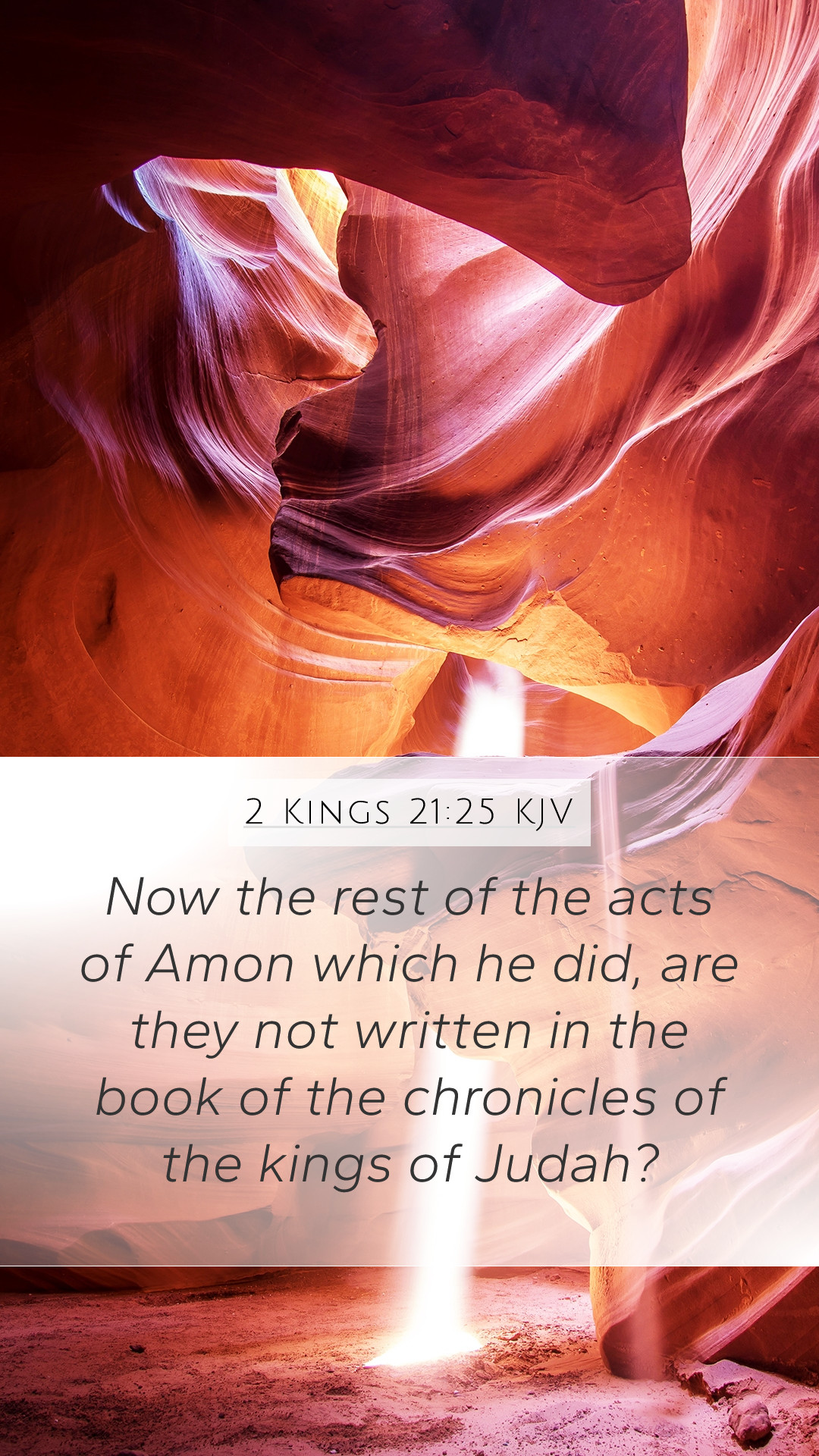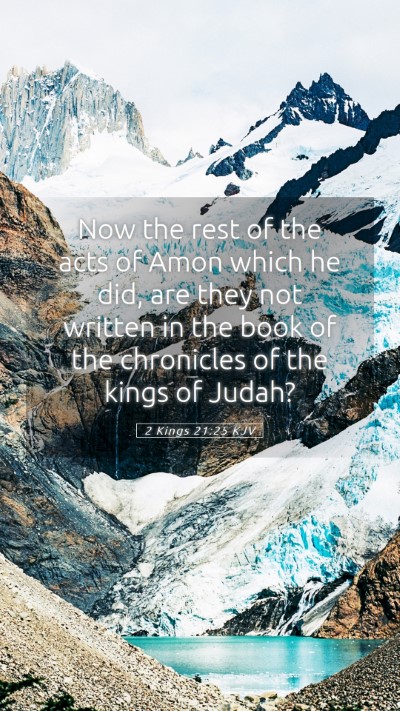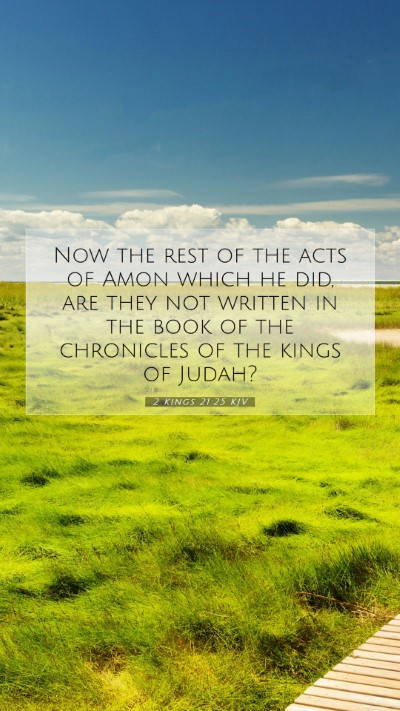Understanding 2 Kings 21:25
Verse: 2 Kings 21:25 - "But the rest of the acts of Amon, which he did, are they not written in the book of the chronicles of the kings of Judah?"
This verse serves as a conclusion to the reign of King Amon of Judah, which was characterized by his idolatry and failure to follow the ways of the Lord. To understand this verse fully, we will explore its significance through various public domain commentaries such as those by Matthew Henry, Albert Barnes, and Adam Clarke.
Bible Verse Commentary
-
Matthew Henry:
Henry notes that King Amon's reign was a period marked by evil and rebellion against God. Despite the emphasis on his wickedness, the mention of the "book of the chronicles" implies a record of events, allowing posterity to learn from the consequences of Amon's actions. Henry highlights the importance of chronicling both the good and the bad in the lives of leaders, as it serves as a moral lesson for future generations.
-
Albert Barnes:
Barnes comments on the brevity of Amon’s positive contributions as compared to his negative actions, illustrating that the acts recorded in the Chronicles were not noteworthy. He stresses that Amon's reign was overshadowed by his sins, which further emphasizes the gravity of leading a nation away from God's commands. This commentary invites readers to reflect on the implications of leadership and accountability in faith.
-
Adam Clarke:
Clarke focuses on the significance of the historical records kept during Amon's reign. He asserts that Amon's actions were a direct contrast to the faithfulness shown by his father, Manasseh, after his repentance. Clarke's analysis suggests that failure to heed the lessons of those who came before can lead to destruction, highlighting the cycle of sin and judgment seen throughout the histories of Israel and Judah.
Meaning of Bible Verses
The essence of 2 Kings 21:25 revolves around the historical account of Amon's reign and the consequences of straying from God's path. This verse serves as a reminder of the importance of faithfulness in leadership and the impact of one's actions on the wider community.
Key Themes
- Wickedness and Rebellion: Amon’s reign is depicted as a time of moral decline, showcasing the consequences that follow rebellion against the divine commandments.
- Chronicling History: The reference to the chronicles highlights the significance of documenting events for reflection and learning.
- Lessons for Future Generations: The records of leaders serve as cautionary tales, urging future leaders and believers to hinge their decisions on faithfulness rather than idolatry.
Application of 2 Kings 21:25
For those involved in Bible study groups or engaging in online Bible study, Amon’s story can prompt discussions around the themes of repentance, accountability, and the importance of righteous leadership. Questions may arise such as:
- What can we learn from the accounts of wicked leaders in the Bible?
- How do our actions reflect our faith, particularly in leadership positions?
- What lessons can be drawn to apply to modern governance and societal values?
Related Bible Cross References
- 2 Kings 21:1-16 - Provides context into Amon's idolatries and spiritual decline.
- 2 Chronicles 33:21-25 - Offers insights about Amon's reign and his influence.
- Jeremiah 15:4 - Mentions the consequences brought about by the actions of leaders like Amon.
Conclusion
In conclusion, 2 Kings 21:25 encapsulates critical aspects of Bible verse interpretations regarding leadership, sin, and national morality. Through the analysis of public domain resources, we gain a richer understanding of scripture and its applications.
Engaging with such verses enhances our Bible study insights as we delve deeper into the meaning and significance of our historical and spiritual heritage.


